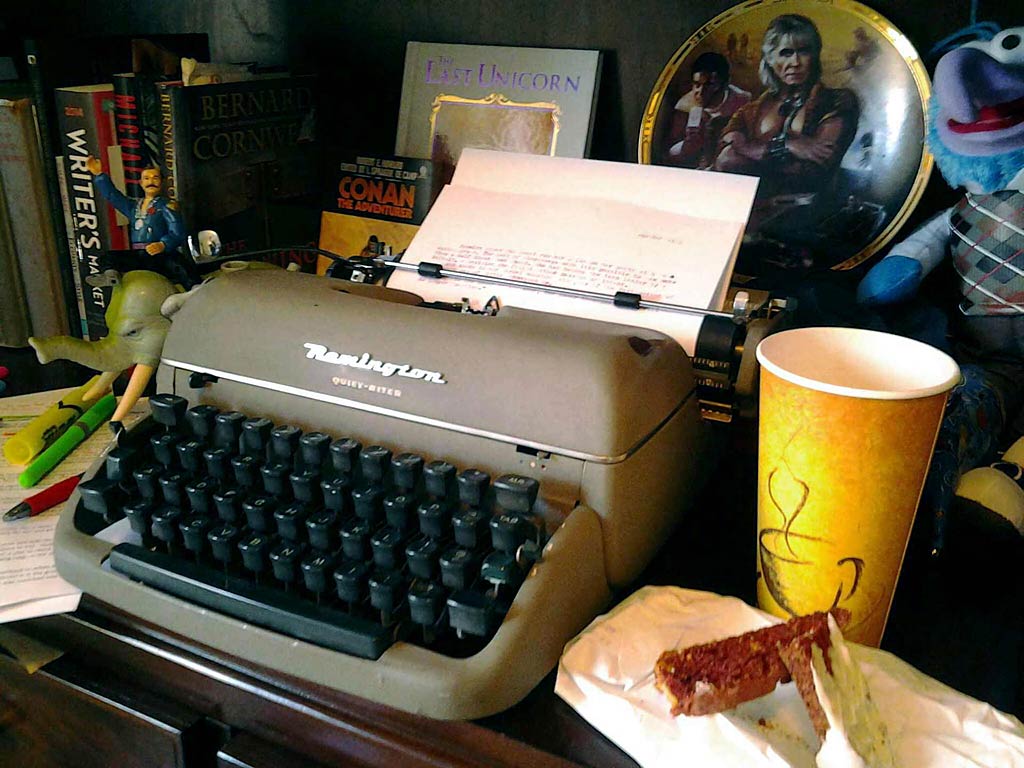If you’re gonna write, you must know the difference between conversation and dialogue.
Something I’ve seen increase lately is the use of profanity to carry a panel. A panel with the only dialogue present something like;
“Fuck, fuck, fuck!”
or
“This shit is fucking shit!”
These lines are purely, 100% subtext… On the surface, being the learned writer you are and recognizing subtext is critically important, you might think a line of pure subtext dialogue is great!
But in truth, it’s about as far from great as you can get.
These conversational lines of profanity are so far at the end of the subtext spectrum, they actually lose all meaning, allowing the reader to interpret them however they like. Nine times out of ten, use of empty expletives as those shown above are void of any narrative drive.
Unless you’re dealing with that tenth time, where the narrative specifically demands dialogue without relevant meaning, avoid condensed profanity outbursts. There is always a more colorful, engaging, way to express what needs to be expressed.
I know what you’re thinking, “what exactly do you mean narrative specifically demands it… I mean my bank robber walks outside the bank and sees thirty SWAT officers aiming down on him, the narrative is specifically demanding an irrelevant outburst…”
NO, the narrative is demanding a cause and effect reaction from that character. (A good moment to really sink your teeth into characterization, while still pushing the narrative forward.) The narrative did not tell you, the character’s reaction needs to be meaningless.
The key to recognizing where/when the narrative demands it, is CHANGE.
How many subsequent panels will be affected by the character’s choice to spew a line of subtextual profanity?
Most of the time, a spew of profanity is a result of extreme mental stress, or confrontation with the horrific. If the instance induces an actual mental break in the character, you’ve got an element of change.
If the spewing of meaningless profanity showcases a change in the character and subsequent panels (perhaps even very long term) are forced to deal with that change, the narrative has created a demand.
If in the next frame, that character is back to speaking and acting like his normal self, and the spewing of meaningless profanity had no bearing on anything… the narrative did not demand it.
For example (rough panel descriptions for the sake of space):
Panel 1: Joker mask bank robber runs outside.
Panel 2: Thirty SWAT guys rack their shotguns.
Panel 3: Close on Joker bank robber, “Fuck, fuck, fuck, fuck.”
Panel 1: Joker bank robber runs back into the bank shooting behind him.
Panel 2: Ski mask bank robber is terrified. He tries to calm Joker bank robber down.
Panel 3: Joker bank robber turns his gun on the bank staff, shooting innocent people.
Panel 4: Ski mask bank robber turns to Reptile mask bank robber, confused and unsure what to do.
Panel 5: Reptile mask bank robber shoots Joker robber dead.
But it’s characterization to show my character spewing expletives!
Everybody uses bad language once in a while… Unless your character is specifically some sort of profanity powerhouse, unless it’s really part of his core characterization specifically known for profane outbursts, occassional lines will only be masked and read generic and meaningless.
Remember, comics are about maximizing effectiveness… taking advantage of every opportunity. The next time you throw a character out of a plane, give him more meaningful last words than, “Fuccccccccckkkkkk!” ▪
About the Author —
Nick Macari is a full-time freelance story consultant, developmental editor and writer, working primarily in the independent gaming and comic markets. His first published comic appeared on shelves via Diamond in the late 90’s. Today you can find his comic work on comixology, amazon and in select stores around the U.S. Visit NickMacari.com for social media contacts and news on his
